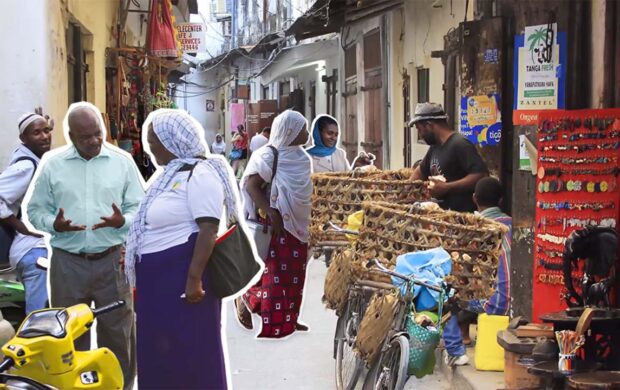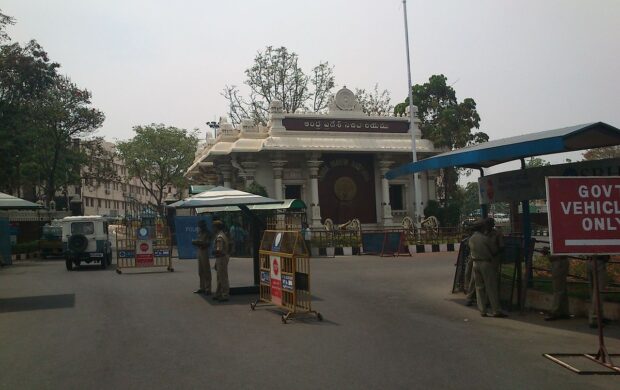A new platform aims to provide some of the world’s 2.4 billion people who lack official identification a way to build financial and social history, as well as access to public and financial services.
AID-TECH brings social and financial inclusion to the under-served and undocumented through a blockhain-based digital ID system, which can be linked to GPS and therefore be used in medical emergencies or to locate people during natural disasters.
This is one example of technology opening up the digital economy and being an enabler of social transformation. AID-TECH was a 2017 Prize Winner of the MIT Inclusive Innovation Challenge (IIC) in the Financial Inclusion category, a recent winner of the James Wolfensohn Game Changer Award, and also named a UN Sustainable Development Goal Pioneer 2017.
Its CEO, Dublin-based Joseph Thompson, argues that Europeans who want to innovate and use technology to include more people in the digital economy must think big and “broaden their scope for growth and social impact.” In AID-TECH’s case, this means enhancing its own growth while offering digital ID technology wherever it is most useful.
The state of Europe’s technology and business innovation expertise is often deliberated. Leading biotech innovator David Braga Malta noted in a recent blog, published by the World Economic Forum, that many think Europe has “an innovation problem” compared with the US and parts of Asia. Counter to this, Malta argues that Europe is in fact “home to some of the biggest and most exciting potential innovations” anywhere. The challenge, he says, is “to turn knowledge and ideas into real economic value.”
[[{“fid”:”8878″,”view_mode”:”default”,”fields”:{“format”:”default”,”alignment”:””,”field_file_image_alt_text[und][0][value]”:false,”field_file_image_title_text[und][0][value]”:false},”type”:”media”,”field_deltas”:{“2”:{“format”:”default”,”alignment”:””,”field_file_image_alt_text[und][0][value]”:false,”field_file_image_title_text[und][0][value]”:false}},”attributes”:{“style”:”height: 437px; width: 800px;”,”class”:”media-element file-default”,”data-delta”:”2″}}]]
Thompson adds that the European market has unique characteristics which entrepreneurs and inclusive innovators must address. For instance, investors and startups are often more risk-averse than in other markets. Additionally, the cultural diversity of each country, combined with language barriers and different national governments, often slows business plan development.
Encouraging entrepreneurship is key to spurring European growth and economic vitality – but this growth must be inclusive in order to be sustainable. MIT’s Inclusive Innovation Challenge (IIC) seeks more European innovators who, like Thompson, share this aspiration. On March 6, the MIT Initiative on the Digital Economy (IDE) announced the launch of its 2018 regional IIC in Europe—a collaboration between Merck KGaA, Darmstadt, Germany, where MIT will identify and promote entrepreneurial organizations in Europe that are using technology to improve economic opportunity for low- and moderate-income earners. Four other regional competitions—in Asia, Africa, North America and Latin America—are also under way.
Thompson says the IIC helped boost his organization’s profile with NGOs and global partners: critical networking and collaboration opportunities abound, as well as the chance to get much-needed funding, he adds. Thompson is now working closely with the United Nations Development Programme to introduce AID-TECH and its solutions to countries where blockchain technology “can play a role in bringing about radical changes.” In a recent interview with CIO, he said, “If we can help propel solutions for sustainable development goals, that’s my mission.”
By Devin Cook, Executive Producer, MIT Inclusive Innovation Challenge
Are you an Inclusive Innovator? Join the Movement.
Thompson encourages European Inclusive Innovators to make their mark and apply to the MIT IIC Europe by May 1. Finalists will be announced on July 2.
In Europe, Judges will select 12 Regional IIC Winners to receive monetary prizes, recognition, and promotion at the IIC Europe Celebration held in Darmstadt, on September 10. The Europe Regional Winners—as well as other regional winners—will advance to the IIC Global Grand Prize Celebration hosted at MIT in Cambridge, MA, in the fall of 2018, where$1 million in prize money will be awarded to four Global Grand Prize Winners. For- and non-profit organizations operating primarily in Europe and/or those that are based in the region are encouraged to apply at www.mitinclusiveinnovation.com.
To support the MIT IIC as a Sponsor, Outreach Partner, or Media Partner, email iic@mit.edu.
To register for the MIT IIC, go to MITinclusiveinnovation.com prior to the May 1 deadline.







Join discussion